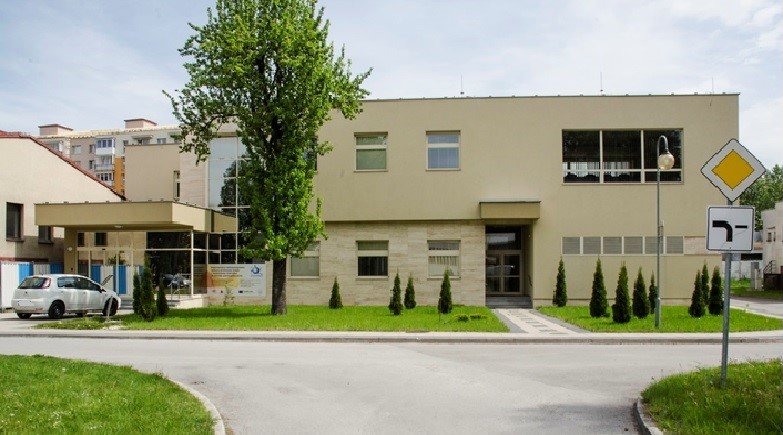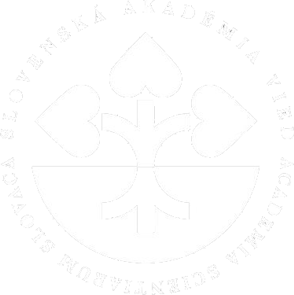Laboratory of Radiobiology
 Contact info: Assoc. Prof. Igor Beliaev, DrSc.
Contact info: Assoc. Prof. Igor Beliaev, DrSc.
e-mail: Igor.Beliaev@savba.sk
Location:
Cancer Research Institute
Biomedical Research Center SAS
Proton Therapy Complex
Central Military Hospital
Generála Miloša Vesela 21, 034 26 Ružomberok
Slovak Republic
Phone: +421 2 322 95 119
Basic info on activities and methods
Currently, radiobiology is attracting considerable interest due to the new possibilities of using ionizing and non-ionizing radiation in medicine on the one hand, and due to increased health risks resulting from exposures, especially to low doses of ionizing radiation and non-ionizing radiation, on the other hand. These issues are in the focus of research projects, which require validated exposure systems and relevant techniques, at the Radiobiological laboratory in Ružomberok. The laboratory has contributed to development of new approaches for inhibition of cancer cell growth with extremely low frequency magnetic fields, mapping of magnetic fields from mobile communication devices in human head, and radiobiological studies for implementation of therapeutic proton complex at Ružomberok. Influence of obesity and obesitogenic factors on DNA damage and radiation sensitivity of adipose and hematopoietic stem cells is currently under investigation. DNA damage response, oxidative stress, chromosome rearrangements, and apoptosis are the main endpoints studied by the state-of-the-art techniques including automated immunofluorescence microscopy, DNA repair foci and comet assays, chromosomal aberrations, micronuclei, and flow cytometry.

Infrastructure & Technology
Members of Laboratory of Radiobiology in Ružomberok (BMC v.v.i , CRI SAS) are fully capable of carrying the in vitro studies with normal and cancer human cells. The equipment available at Ružomberok laboratory (besides standard laboratory devices for biochemical/molecular biology and cell biology) covers:
Established cell culture laboratory with CO2 incubator specially adapted for exposure to non-ionizing radiation and Deep freezing box -80.
Automated Scanning System Metafer-MetaCyte (with software for DNA repair foci analysis, CometScan upgrade for Metafer-MetaCyte, software upgrade for unattended detection and relocation of metaphase spreads on Metafer4).
Flow Cytometer, Accuri C6 for analyses of ROS, apoptosis, cell viability et cetera.
Proton dosimeter (Bragg peak chamber 2.5 cm3) for measuring proton beam doses of various energies with effective dosimetry in the range of energies from 10 MeV to 300 MeV.
RANDO Phantom, female: experimental model for physical and biological dosimetry: made of special material equivalent to human tissue, the phantom imitates the consistency of the human body, simulates soft tissues and represents the normal human skeleton.
AVTD analyzer (AVTD-Anomalous Viscosity Time Dependency): device for measuring the time-dependent anomalous viscosity of the DNA chromatin structure, for DNA damage analysis.
System of Oblong Orthogonal Coils (SOOC). System of coils especially designed for the exposure of 96-well microplate cell cultures to static and/or extremely low frequency magnetic fields, in simultaneous to their incubation in a CO2 incubator.
Tri-axial magnetometer. A commercial HMC5883L tri-axial magnetometer chip combined with open-hardware electronics (ARDUINO) and a custom-written Python code to measure and map static magnetic fields up to 800 uT.
DS1052E digital oscilloscope. Used for visualization and measurement of the electrical signals used to generate the ELF magnetic fields.
DG1022 arbitrary wave generator. Used for generating the signals injected to the SOOC, to generate the ELF magnetic fields.
B5-45A DC Power Supply used for injecting DC currents to the SOOC, so as to generate DC (i.e., static) magnetic fields.
Notebook with Linux installed, to handle the static tri-axial magnetometer (HMC5883L).
TM-192 3-axis magnetometer. Used to measure the background AC magnetic fields inside the incubator, or when mapping magnetic fields outside the incubator.
TM-196 RF 3-axis field strength meter. Used to measure the background RF magnetic fields inside the incubator, or when mapping magnetic fields outside the incubator.







